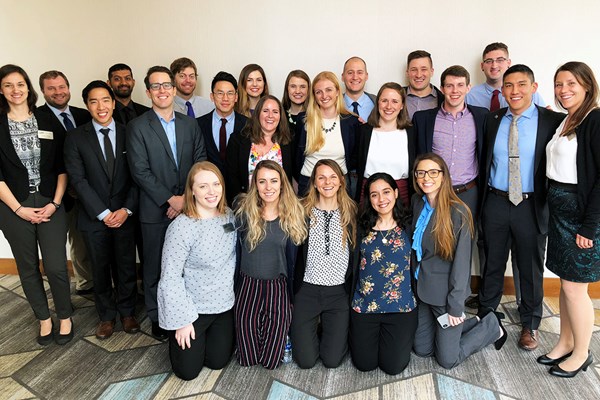Are you interested in becoming more involved in the field of emergency medicine but unsure about the best path to do so? Then participating in EMRA’s Medical Student Council (MSC) may be the best thing for you!
What is a medical student council?
A MSC is a fantastic opportunity to increase your involvement in the field of emergency medicine by networking with other medical students that share your interests and creating resources to assist other medical students interested in pursuing a career in emergency medicine. MSCs have many goals, but the main ones include:
- Developing a peer network for medical students aspiring to careers in emergency medicine
- Increasing communication between medical schools to encourage collaboration on projects, to pool resources, and to disseminate informational materials
- Providing leadership roles in organized emergency medicine
- Serving as a direct link between professional organizations (like EMRA and ACEP) and medical students interested in the field of emergency medicine
How do I join a medical student council?
If you are interested in learning more about MSCs and possibly getting involved, the first step is to figure out which MSCs you are eligible to join.
All medical students can apply for positions on the EMRA Medical Student Council. The EMRA MSC is essentially the medical student version of the EMRA Board of Directors. The EMRA MSC includes 25 students from medical schools across the country and world. These 25 students serve in roles comprising a governing council, representatives to the AMA, and regional representatives, who collaborate to promote the interests of all medical students interested in the field of emergency medicine.
In addition to the EMRA MSC, multiple state ACEP chapters have MSCs that focus on issues relevant to their state and are open to students who attend medical schools within that state. Some examples include Texas, Florida, and Georgia. Additionally, other states like Arizona and Washington are currently in the process of creating a MSC. We encourage you to contact your state’s MSC or your regional representative on the EMRA MSC to find out how to become involved in your state’s MSC.
What kind of roles are available in an MSC and how are they normally structured?
Newer MSCs usually have a governing council and liaisons from each medical school within their state. The governing council typically has 1-2 chairs and a secretary, while each medical school has 1-2 liaisons that represent their specific medical school’s interests and are responsible for disseminating information to their fellow students. As MSCs develop and take on more responsibilities and projects, additional leadership roles that focus on other issues are created (eg, advocacy coordinator, communications, social media, etc).
What do I do if my state does not have its own MSC?
Besides getting involved in the EMRA MSC, if your state does not currently have its own MSC than you can create your own! We highly encourage you to reach out to your regional representatives on the EMRA MSC to find out what your options are and if there is an opportunity to create your own MSC!



